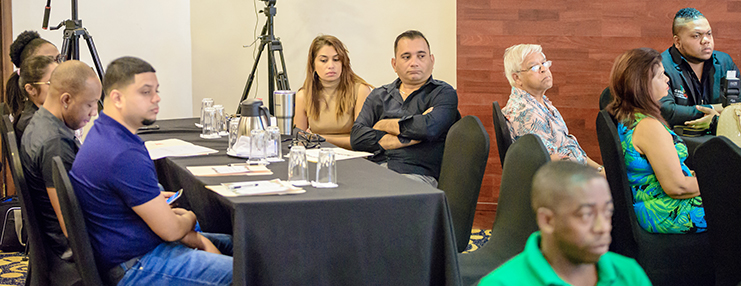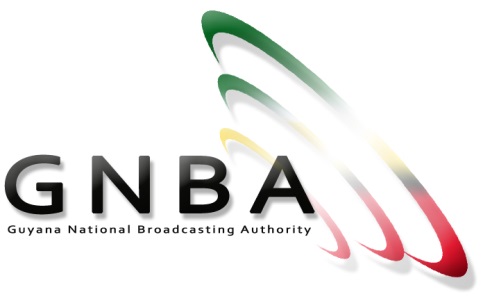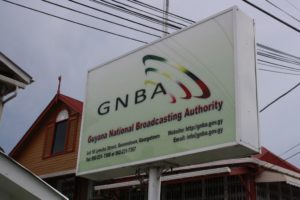GNBA Citizen Monitoring Project for 2019 roll out
As the Guyana National Broadcasting Authority looks to step up its monitoring, local broadcasters were last Friday informed of the Authority’s plans to begin rolling out its proposed “Citizen Monitoring” programme early next year.
The programme is being implemented with the particular aim of focusing on those broadcasters operating outside of the primary zone, which mostly encompasses those broadcasters operating out of Georgetown.

Hosting the broadcasters at a luncheon on Friday at the Herdmanston Lodge, the GNBA noted that getting broadcasters to be compliant with the guidelines continues to be a challenge for the authority and addressed some of the challenges faced.
“We monitor fairly thoroughly the primary zone, but we have not been able to put in place monitors for the other zones; and this is in direct response to that. We will have volunteer monitors in all the regions of Guyana. We are just at the start of setting that framework up. It will cover not only the primary zone but all the other zones as well,” pointed out Communications Specialist and GNBA board member, Dr. Rovin Deodat.
Deodat gave a presentation on “External and Internal Monitoring.” The GNBA has a monitoring department that tracks the broadcast of its various licensed broadcasters — television, radio and cable – and monitors their broadcasts to ensure they are in keeping with the Broadcast Act 2011.
GNBA board member Jocelyne Jossiah noted that beginning in March 2018, there has been a dip in the number of monthly infractions by the broadcasters, but much work still remains to be done.
Making a presentation on the “Challenges in Monitoring”, she noted that the GNBA continues to try to come up with different measures to educate broadcasters on infringements and compliance with the Broadcasting Act of 2011.
She attributed the 2018 dip in infringements to the implementation of a colour-coded letter system, whereby broadcasters were sent yellow, green or red letters based on the severity of their infractions. Prior to that infractions had reached as high as 98 for July last year.
“The development and introduction of the colour-coded rating system in December saw the number falling drastically to about 12 [infractions]… Given the reduction when it comes to infringement and increased outreach by broadcasters for guidance and clarity, we have concluded that the issuing of colour-coded letters to broadcasters is having an impact,” she noted.

Josiah was assisted by Broadcast and Compliance Coordinator Travis Montooth to give the broadcasters a chance to see a few clips of some of the infractions that were flagged throughout this year, with the aim of helping to get a better understanding of what constituted the infraction.
The examples showed several items broadcast during prime time; these included a movie with a soft-core sex scene, and another that illustrated gruesome injuries and partial nudity.
Two different live call-in talk shows from two separate television channels were cited for “incitement, based on things said by callers. Broadcasters are expected to have in place a delay system, which would allow the prevention of such things being aired in the case of live shows.
Another citation included a condom advertisement that included sexually suggestive imaging that was broadcast during prime time. There was also a newscast during which pictures of dead bandits were shown, and another newscast citation for “videoing of persons in distress,” where a woman was seen fainting after showing up at the scene of her murdered reputed husband.
GNBA board members acknowledged that education and sensitisation of the broadcasters and other production staff at the different organisations remain an area in need of work. On that note, there were talks of collaborating with the broadcasters to host training sessions for their staff.
However, a point of question was the subjectivity on deciding what constituted an infraction and what did not, given sexual connotations hidden in many of our local cultural folk songs. In response to this, GNBA Chairman Leslie Sobers said, “It would have to take you many many years of experience before you can really start to see the other side of our folk songs. That level of subtlety is not really one which you can call vulgar.”
Emphasis was also placed on the need for broadcasters to come more into compliance with the consideration for persons with disabilities (PWD), particularly in the need to cater for the hearing-impaired with the provision of sign language and/or use of closed-captioning.
Source: Guyana Chronicle



